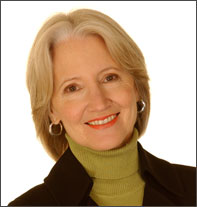Bill Schubart: Lila and Theron (A Novel)
December 13, 2017 by David
Filed under Fiction, WritersCast
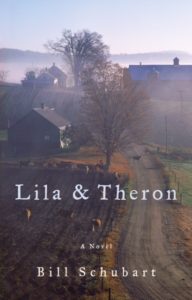 Lila and Theron (A Novel) – Bill Schubart – Charles Michael Publishing – Hardcover — 9781682613566 – 192 pages- $19.95 – ebook versions available at lower prices – June 6, 2017
Lila and Theron (A Novel) – Bill Schubart – Charles Michael Publishing – Hardcover — 9781682613566 – 192 pages- $19.95 – ebook versions available at lower prices – June 6, 2017
This small book is short and sweet in a very good way. Through well written fiction, the book documents and celebrates an imagined place and people in time, that have only recently disappeared from the American landscape. It’s difficult for most of us moderns to imagine life without all the technological conveniences we have come to take for granted today. It was not that many years ago that the isolated mountain communities of northern Vermont were still home to small farmers, whose daily lives were closer in rhythm to the nineteenth century than to even the twentieth, much less the technologically advanced twenty first century of today. Some of these hardy folk still farmed with horses into the 1960s, and many small-scale daily and truck farming operations managed by dint of endless toil, to support the families on the land they had worked for generations.
To most of us, these lives will be as foreign as science fiction. Harsh circumstances often make people harsh, but Schubart’s characters find a way to access their humanity despite all the struggles of life which which they must cope. It’s a joy to get to know these characters and to share the stories of their lives. Schubart, now in his seventies, bridges this time frame. He grew up in northern Vermont, and while his life experience was vastly different from the farm people he writes about here, these are people he knew and loved during the his youth, and it benefits us all that he has brought them to life in this lovely novel.
Thelma dies at nineteen giving birth to a son, Theron. When the son first meets his father, he learns his mother’s death is his fault and can only muster the question, “How did she die?”
Looking away, the father mutters, “She died givin’ birth ta you. An’ I lost all her help and comforts.”
“I have long considered Bill Schubart to be the wisest columnist in America. That same wisdom, deep life experience, and empathy come shining through on every page of his new novel, Lila and Theron. Full of joy, sadness, humor, and insight, Lila and Theron is a clear-eyed celebration of our almost boundless capacity, despite all our human frailties, to love both one another and the place we call home. Over the years, I have known many true and good country people like Lila and Theron, whom I have been proud and honored to call my friends. This is a beautiful book.” – Howard Frank Mosher, author of Marie Blythe and Walking to Gatlinburg.
Bill Schubart has lived with his family in Vermont since 1947. He writes about Vermont in fiction, humor and opinion pieces, is the author of several books, is a regular commentator on Vermont Public Radio, and active in Vermont community and political life. Learn more about him and his work at his website.
It was a true pleasure for me to share a conversation about Vermont and its people, small-scale farming, and the art of fiction with my old friend, Bill Schubart.
Podcast: Play in new window | Download
Elizabeth Farnsworth: A Train through Time – A Life, Real and Imagined
October 15, 2017 by David
Filed under Fiction, WritersCast
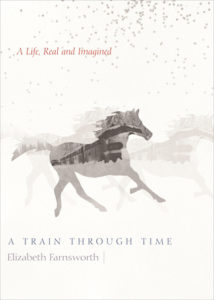 A Train through Time: A Life, Real and Imagined – Elizabeth Farnsworth – Counterpoint – Hardcover – $25.00 – 160 pages – February 14, 2017 – ebook versions available at lower prices
A Train through Time: A Life, Real and Imagined – Elizabeth Farnsworth – Counterpoint – Hardcover – $25.00 – 160 pages – February 14, 2017 – ebook versions available at lower prices
“I began this book with a sense of discovery and finished it in a state of exaltation. Along the way it broke my heart. It has been a long time since I read a book so moving, plain spoken and beautiful. The instant I finished it, I went back to the beginning and started in again.” ―Michael Chabon
This slim – and gorgeously produced – memoir is one of the most striking and memorable books I have read recently. I have to simply echo what Chabon said about it – Elizabeth Farnsworth has written something very special, a book that does not fit easily into our conception of book categories – and that is a good thing. Her book is an exploration of childhood memories of loss and of family life that woven together with more recent stories of her work as a journalist and documentary film maker, are built into a fictional structure. The book forms an almost dream state to carry the author (and the reader) through her story.
Farnsworth interrogates her own understanding of events, real and imagined, to understand the arc of her life. It is a truly magical journey of self and psyche.
A Train through Time is illustrated with the remarkable photo art of Mark Serr, whose works contribute to the ethos and sensibility of the book, as well as providing us with a beautiful and dreamy cover image.
Of course it helps that Farnsworth is a fine writer and a terrific storyteller. I was deeply moved by this book, and really enjoyed having the opportunity to speak with the Ms. Farnsworth about her story, about trains, journeys, and life in general. As an experienced television personality, she is very comfortable in recorded conversation and we had a great talk together, which I hope you will enjoy.
Elizabeth Farnsworth is a filmmaker and a foreign correspondent. For many years, she was the chief correspondent on the PBS NewsHour hosted by Jim Lehrer. During her career, she traveled widely to report on stories in Cambodia, Vietnam, Chile, Haiti, Iraq, and Iran and many other places. Farnsworth grew up in Topeka, Kansas, has a B.A. from Middlebury College, an M.A. in history from Stanford University and now lives in Berkeley, California.
Her documentaries include The Judge and the General (2008) and The Gospel and Guatemala (1983).
You can learn more about the author and A Train Through Time at the Counterpoint website here.
Podcast: Play in new window | Download
Jessica Anya Blau: The Trouble with Lexie
June 21, 2017 by David
Filed under Fiction, WritersCast
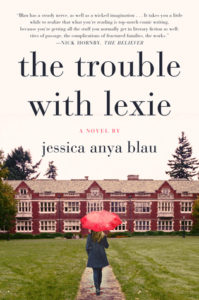 The Trouble with Lexie: A Novel – Jessica Anya Blau – HarperCollins – paperback – 9780062416452 – 336 pages – $14.99 – ebook versions available at lower prices.
The Trouble with Lexie: A Novel – Jessica Anya Blau – HarperCollins – paperback – 9780062416452 – 336 pages – $14.99 – ebook versions available at lower prices.
I interviewed Jessica Anya Blau in 2014 about her previous book, The Wonder Bread Summer, which I found to be wonderfully entertaining and fun to read. Her latest novel, The Trouble with Lexie, displays Blau’s signature wit and fast paced story telling. But it is a complicated book with a seriously flawed and emotionally scarred main character, who faces a very challenging situation in her life.
The book’s opening is pretty compelling (as book openings should be!):
The problem wasn’t so much that Lexie had taken the
Klonopin. And it wasn’t even really that she had stolen
them . . . the problem, as Lexie saw it, was that she had
fallen asleep in the bed of the owner of the Klonopin.
And the owner of the Klonopin was the wife of her lover.
Lexie is an engaging and sometimes irritating main character. As we watch her try to figure out her life, I suspect most readers will want to reach into the pages of the book and tell Lexie directly when she is about to make a big mistake. But she is on her own path and we must follow along as she makes her way toward and through disaster.
Lexie James makes for a terrific main character. She is funny and thoughtful, comes from a decidedly untraditional family, and as a relatively young adult, has figured out how to conquer her panic attacks. She is also engaged to a truly nice guy, and has a job as a counselor at a prestigious private school (presumably in Massachusetts).
But with the wedding fast approaching, Lexie is faced with doubts about her future and who she really wants to be. She falls into a wild love affair with an older married man, a typically bad decision that readers know will have serious consequences.
Most of us have been in similarly fraught situations at one time or another, always convincing ourselves that we’re different and “everything will work out” when we know that is not really true.
Lexie’s story is an example of that central human foible, a form of hubris that makes us believe we can beat all the odds when we want something so much we know we cannot possibly attain. What makes this novel work is that despite knowing that she is headed for a cliff, we end up liking Lexie so much that we want to believe there is a better future for her, and by extension for ourselves. You will have to read the book to find out how this one turns out, no spoilers here.
I very much enjoy talking to Jessica about her books, her characters and stories, and hope you will find our conversation as enjoyable and entertaining as it was for me.
Podcast: Play in new window | Download
Eugene Mirabelli: Renato After Alba (a novel)
June 13, 2017 by David
Filed under Fiction, WritersCast
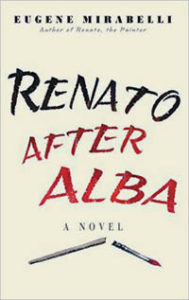 Renato After Alba – Eugene Mirabelli – McPherson & Company – hardcover – 978-1-62054-026-8 – 192 pages – $24.00
Renato After Alba – Eugene Mirabelli – McPherson & Company – hardcover – 978-1-62054-026-8 – 192 pages – $24.00
Eugene Mirabelli has been writing novels since the late 1950s. His first book, The Burning Air, was published by Houghton Mifflin in 1959. Over the years, his style has changed and matured as he developed his voice as a novelist. I was introduced to Gene’s work by his current publisher, Bruce McPherson, who is the kind of publisher who hands you a book and says, “you need to read this.” Over the years, I have made many literary discoveries by following Bruce’s recommendations.
Renato After Alba is the sequel to Gene’s 2012 novel, Renato, the Painter. It is warm, painful, and and highly personal. This book is called a grief novel for a reason. Do not be afraid to pick up this short novel, and dive into this writer’s exploration of sadness and beautiful sorrow. It is moving and entertaining, and revelatory, and as the best fiction does, will make you feel deep emotion in a transformative way.
Artist Renato Stillamare’s beloved wife of fifty years dies unexpectedly, leaving him heartbroken and dazed. The novel is a pastiche of fragments, much like a collage, with the artist trying to discover where all the pieces of his life and memories belong. He recounts stories of the members of his Sicilian-American family, conversations with friends, family members, and even new people in his life. All of it is an effort to rebuild a life without Alba, or with the memory of her, in a way that will enable Renato to continue living. There is humor, and pain and discovery, all the things in life that make it worth living, and a book well worth reading.
One of the pleasures Writerscast has brought me is the opportunity to read great books and to talk to their authors about writing, art and life. Meeting Gene Mirabelli through his writing and in conversation has been a singular pleasure for me.
“For anyone who loves the work of James Salter or William Trevor, Eugene Mirabelli is another writer to treasure, and Renato After Alba is one of the best books I’ve read in ages — a beautiful, profound and exhilarating novel about what sustains us in the face of inevitable loss.” — Elizabeth Hand, author of Hard Light and Generation Loss
As Robert Gray reported in Shelf Awareness:
November 4, 2016 was proclaimed Eugene Mirabelli Day in Albany, N.Y. In her proclamation, Mayor Kathy M. Sheehan noted that in his most recent book, Renato After Alba–a sequel to his 2012 novel Renato, the Painter (both published by McPherson & Co.)–the 85-year-old author “touches upon universal aspects of human existence by creating lovably flawed characters who subtly express the full range of human emotion and experience, from great joy to crushing loss, from deep love of life to rage against the inevitability of death. All written with clarity and cleverness and craft.”
Eugene Mirabelli is the author of nine highly acclaimed novels — five of which feature members of Renato’s extended family and his friends. Visit Eugene’s website is here. Publisher McPherson & Co. website is here.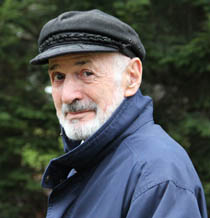
Podcast: Play in new window | Download
Elizabeth Hand: Fire
May 11, 2017 by David
Filed under Fiction, WritersCast
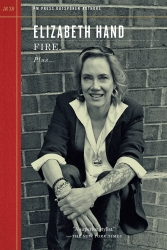 Fire (Outspoken Authors Series) – Elizabeth Hand – PM Press – paperback – 978-1-629632-34-6 – 128 pages – paperback – $12.98 (ebook version available at $9.99)
Fire (Outspoken Authors Series) – Elizabeth Hand – PM Press – paperback – 978-1-629632-34-6 – 128 pages – paperback – $12.98 (ebook version available at $9.99)
Over the years, I had heard of Elizabeth Hand, and knew she was a writer to be reckoned with, but I had never read her science fiction and mystery novels or stories. She was just not on my radar. Now, having read this fantastic short collection of some of her fiction and nonfiction, I have belatedly begun to understand the scope of her work and enjoyed the opportunity to experience her powerful writing.
Fire is a short book that packs a big punch. Maybe it is the ideal introduction to Hand’s work, and maybe that was PM Press’ intention in publishing it. The title story was written especially for this book. It is a powerful post-apocalyptic short story set in a world – our own – approaching global conflagration.
In a useful essay, “The Woman Men Couldn’t See,” Hand examines the work and life of Alice Sheldon, who wrote some stunning science fiction novels under the pseudonym “James Tiptree, Jr.” in order to conceal identity from both readers and her bosses at the CIA. In another nonfiction contribution called “Beyond Belief,” Hand talks about how she went from being a troubled teenager to a serious writer. Other pieces include some of her short fiction, a bibliography of her writing, and PM’s own interview with the author (which I tried to not replicate in my own conversation with Elizabeth).
After seeing Patti Smith perform, Hand became involved in the nascent punk scenes in DC and New York. She worked at the Smithsonian’s National Air and Space Museum in Washington, D.C. Hand is the author of a number of novels and three collections of stories and her work has been recognized by the Nebula, World Fantasy, Mythopoeic, Tiptree, and International Horror Guild Awards. Her novels have been chosen as notable books by both the New York Times and the Washington Post. Hand is a regular contributor to the Washington Post Book World and the Magazine of Fantasy and Science Fiction, and lives with her family on the coast of Maine.
Talking to Elizabeth Hand was great fun for me. She is as good a conversationalist as she is a writer, and has alot to say that I think listeners will find interesting. I hope this interview with Elizabeth Hand will be a useful and meaningful contribution to our literary landscape. Now that I have become familiar with her work I intend to add Elizabeth Hand’s fiction to my ever expanding list of “must-read” books. Thanks to PM Press for introducing me to this wonderful writer’s work.
Podcast: Play in new window | Download
John Manuel: Hope Valley (a novel)
April 20, 2017 by David
Filed under Fiction, WritersCast
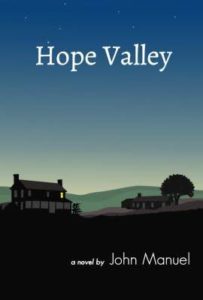 Hope Valley: A Novel – John Manuel – self published – paperback – 9780998111209 – 284 pages – $14.95 (ebook version available at lower price)
Hope Valley: A Novel – John Manuel – self published – paperback – 9780998111209 – 284 pages – $14.95 (ebook version available at lower price)
In the early 1970s I lived in the more or less rural county outside Durham, North Carolina. It was a far different cultural milieu than I had ever experienced previously, surrounded mostly by farmland and people who had grown up as native North Carolinians. To someone like me, raised in the urban and suburban northeast, North Carolina was, at that time, still very much the traditional Old South, resisting so much of the cultural change that was sweeping America then.
But it was not long after this that things began to change significantly in the South, as increasing numbers of transplants came to places like Durham, Charlotte and many other towns and cities in North Carolina.
John Manuel, who was a classmate of mine in college, got to North Carolina himself in the early 1970s and has stayed there as a writer and cultural observer with considerable skills in both. John is the author of two fine books, The Natural Traveler Along North Carolina’s Coast (John Blair, 2003) and The Canoeist (Jefferson Press, 2006). His environmental journalism has been published in Audubon and many other magazines and his short stories have appeared in the Savannah Anthology and the New Southerner.
John’s novel, Hope Valley, is set in the same general area in which I lived when I was there, and both the geographical setting of the book and its characters will feel both familiar and comfortable to anyone who spent time there or in other parts of the South during the late 20th century, a period of immense change and disruption.
The story centers on Hurley and Opal Cates, who in their retirement live on a small farm on the edge of the growing orbit of Durham. Hurley is committed to caring for his property, particularly its large lawn, and also the house he built for his son, Buddy. But Buddy sells his house to a young female couple, creating a bit of a crisis for the Cates family. Despite many challenges, the two families learn how to co-exist, despite their vast cultural differences.
Much of the novel involves the ways that Hurley and Opal and their new neighbors learn to live together. But things are not so easily resolved, and this sometimes sad and also uplifting story becomes a parable about the difficulties that face modern America today. The book carries a warm and loving message about acceptance and change, and the meaning of respect, mutuality and yes, the valley of hope we all desire for our families and communities.
Hope Valley is a well conceived and beautifully written book that I hope will reach a wide audience, not just in the south. My conversation with author John Manuel reflects my deep appreciation for his book, and John’s quiet, sincere belief in humanity and our future. Learn more about John and his work at his website. You can find the book at most online retailers and also at independent booksellers in North Carolina, for example, the wonderful Regulator Bookshop in Durham.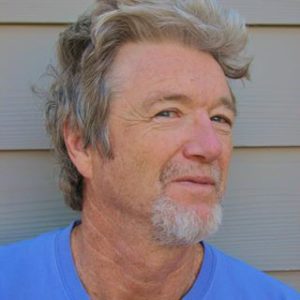
Podcast: Play in new window | Download
Brad Watson: Miss Jane (a novel)
March 10, 2017 by David
Filed under Fiction, WritersCast
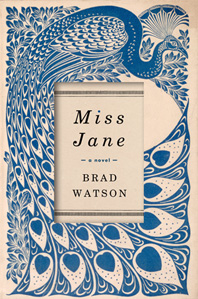 Miss Jane: A Novel – Brad Watson – W.W. Norton & Company – Hardcover – 9780393241730 – 284 pages – $25.95 (ebook versions available at lower prices)
Miss Jane: A Novel – Brad Watson – W.W. Norton & Company – Hardcover – 9780393241730 – 284 pages – $25.95 (ebook versions available at lower prices)
I originated the Writerscast series of conversations with writers at least in part, to remind myself to keep reading book length prose. I didn’t want to miss out on discovering great books and finding new writers to read. In this era of too much noise and stimulus, reading a novel or a serious work of nonfiction can be a wonderful pleasure, as well as a reward for escaping the rhythms of daily life. It does take time, and sometimes finding time to read is difficult. But there are some books that are completely fulfilling to spend time with. Having the opportunity to read a novel like Brad Watson’s Miss Jane was a deeply rewarding experience, and one I will not soon forget. Discovering books like this one is a special experience for me.
This is the kind of novel that you don’t come across that often. It is not action packed. In fact, it is more quiet than any novel I have read in a very long time. And it is fully engrossing.
I really love this book and have found myself talking about it to people all the time. It is that special. The writing is luminous, and the characters are as alive and present as if they were in the room with us as we read. I cannot imagine it is possible to not fall in love with this book.
But enough rhapsodizing about the book. I need to give you just a bit about the story, so you have a sense of what it is about. Miss Jane is based on the life story of Brad’s own great-aunt. Because he did not know her at all really, he had to imagine her life in rural, early twentieth-century Mississippi, born with an unusual and not talked about genital birth defect, that would prevent her from having either sex or a marriage. But just as Brad’s real aunt lived a full and long life, so he imagines Miss Jane to live, alone, but with family and other relationships as well. Her life was completely her own, and while it was not her choice to be made the way she was, it was her choice completely to live a complex and deeply experienced life of her own.
Brad Watson is a truly fine writer. The reviews for Miss Jane bear that out. He is the author of two collections of stories and the novel The Heaven of Mercury, which was a finalist for the 2002 National Book Award. His fiction has been widely published in magazines. Most recently, Brad was selected to receive the Harper Lee Award for Alabama’s Distinguished Writer of the Year for 2017 and Miss Jane is included on the 2017 longlist for the Wellcome Book Prize. He teaches at the University of Wyoming, Laramie.
I hope you will enjoy listening to our conversation about this amazing and wonderful book.
Podcast: Play in new window | Download
Blume Lempel: Oedipus in Brooklyn and Other Stories
January 12, 2017 by David
Filed under Fiction, WritersCast
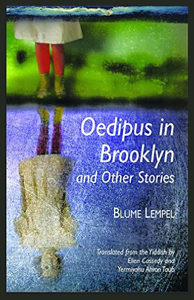 Oedipus in Brooklyn and Other Stories by Blume Lempel – Translated by Ellen Cassedy & Yermiyahu Ahron Taub – Mandel Vilar Press & Dryad Press – paperback – 9781942134213 – 240 pages – $16.95 (ebook versions available at lower prices)
Oedipus in Brooklyn and Other Stories by Blume Lempel – Translated by Ellen Cassedy & Yermiyahu Ahron Taub – Mandel Vilar Press & Dryad Press – paperback – 9781942134213 – 240 pages – $16.95 (ebook versions available at lower prices)
This book was the winner of the 2012 Translation Prize awarded by the Yiddish Book Center.
Blume Lempel wrote in Yiddish, her native language. She was a wonderful storyteller with a strange and far reaching imagination. Hear writing slips beautifully between realistic and dreamlike states, lyrical and penetrating in style, completely compelling to the modern reader. What a surprise to discover this writer whose poetic language style is masterful.
As the publisher describes her stories: “A Holocaust survivor speaks to the shadows in her garden, a pious old woman imagines romance, a New York subway commuter forges a bond with a homeless woman, and in the title story a mother is drawn into a transgressive relationship with her blind son.”
Ellen Cassedy and Yermiyahu Ahron Taub (the translators) on encountering Blume Lempel’s stories wrote: “When we began reading and translating, we didn’t know we were going to find a mother drawn into an incestuous relationship with her blind son. We didn’t know we’d meet a young woman lying on the table at an abortion clinic. We didn’t know we’d meet a middle-aged woman full of erotic imaginings as she readies herself for a blind date. Buried in this forgotten Yiddish-language material, we found modernist stories and modernist story-telling techniques – imagine reading Gabriel Garcia Marquez with the conversational touch of Grace Paley.”
Lempel (1907–1999) was one of a very few writers in the United States who wrote in Yiddish into the 1990s. She immigrated to New York during the time that Hitler rose to power, and began publishing short stories in 1945. By the 1970s her work had become known throughout the Yiddish literary world. When she died in 1999, the Yiddish paper Forverts wrote: “Yiddish literature has lost one of its most remarkable women writers.”
Blume Lempel (1907-1999) was born in Khorostkiv (now Ukraine). She immigrated to Paris in 1929 and fled to New York on the eve of World War II. This book is the first English-language collection of Lempel’s stories and is based on a manuscript that won the 2012 National Yiddish Book Center Translation Prize.
Ellen Cassedy and Yermiyahu Ahron Taub received the 2012 translation prize from the Yiddish Book Center for their translation of short stories by Blume Lempel. In 2016, Ellen Cassedy received a PEN/Heim translation grant for her work on the Yiddish writer Yenta Mash, the first time the prize has been awarded for a Yiddish book. Ellen is the author of We Are Here: Memories of the Lithuanian Holocaust published by University of Nebraska Press.
Yermiyahu Ahron Taub is the author of four books of poetry, Prayers of a Heretic/Tfiles fun an apikoyres, Uncle Feygele, What Stillness Illuminated/Vos shtilkayt hot baloykhtn, and The Insatiable Psalm. Tsugreytndik zikh tsu tantsn: naye Yidishe lider/Preparing to Dance: New Yiddish songs, a CD of nine of his Yiddish poems set to music, was released in 2014. He was honored by the Museum of Jewish Heritage as one of New York’s best emerging Jewish artists and has been nominated four times for a Pushcart Prize and twice for a Best of the Net award. His short stories have appeared in Jewish Fiction .net, The Jewish Literary Journal, and Jewrotica. Taub’s website is www.yataub.net.
This is the first interview I have done with two writers simultaneously; I think it worked well, thanks to the interviewees handling this conversation so deftly.
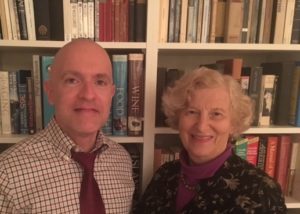
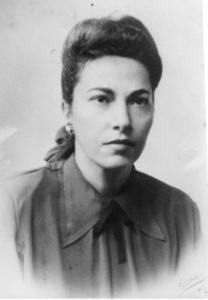
Podcast: Play in new window | Download
Louie Cronin: Everyone Loves You Back
November 20, 2016 by David
Filed under Fiction, WritersCast
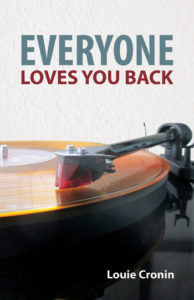 Everyone Loves You Back – 9781941576229 – Gorky Press – paperback – $15.95
Everyone Loves You Back – 9781941576229 – Gorky Press – paperback – $15.95
I very much enjoyed reading this well written and humorous novel. It’s set in Cambridge (“our fair city” MA), and depicts the sort of culture clash that has occurred all over America as livable cities are reinhabited by the latest version of what we used to call yuppies. These newcomers to city neighborhoods have completely different values – and economic realities – than the folks who grew up there. It’s a rich environment for fiction too. So this is a novel that will likely resonate for many readers on a sociopolitical basis, in addition to its deft handling of the relationships between the sexes. And because Cronin comes from public radio – she was a producer and writer for the much loved and missed Car Talk – the setting of this novel is one that many of us whose industries have undergone wholesale modernization, can appreciate as well.
Is there a category of novel for “late Baby Boomer” coming of age stories set in the present? I am not well enough read to say. The publisher calls this a “coming of middle-age novel,” which seems apt. I do think that especially for readers of “a certain age” this book could become a favorite. And you don’t have to struggle with a changing neighborhood or have issues with your love life to appreciate the joyfulness and humor of this novel.
Louie and I had a fun time talking about her book, her work and the way she was able to inhabit her male main character, a feat of imagination and courage for any novelist.
Louie Cronin is a writer, radio producer, and audio engineer. She worked as a producer/writer for Car Talk on NPR for ten years. Her fiction and essays have been published in a variety of magazines and journals. She is not the technical director for PRI’s The World and lives in Boston with her husband, the sculptor James Wright.
Podcast: Play in new window | Download
Kate Tempest: The Bricks that Built the Houses: A Novel
July 5, 2016 by David
Filed under Fiction, WritersCast
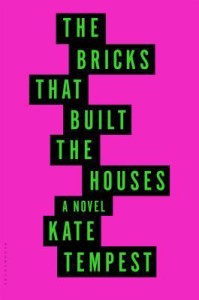 9781620409015 – Bloomsbury USA – 416 pages – Hardcover – $26 – ebook versions available at lower prices, paperback scheduled for February 2017
9781620409015 – Bloomsbury USA – 416 pages – Hardcover – $26 – ebook versions available at lower prices, paperback scheduled for February 2017
I found out about Kate Tempest more or less accidentally, through an odd set of search results one day while fooling around on YouTube, and therefore I must thank the seemingly strange, but often wonderful algorithms of its search tools. What a discovery! After seeing and hearing Kate’s poetry performances, I immediately bought her books and was completely enthralled.
I don’t seem to have too many poetry friends who know about Kate’s work, and that is a shame. She is British, and young, and very modern in affect. But she is an old soul, with a deep and powerful intellect, and her voice is one that I find both compelling and mesmerizing. I think she is simply a great writer, and stands out for the power of the words she marshals as well as the intellection that informs those words.
If you have not heard or seen Kate Tempest, or heard of her work, I’d urge you to visit YouTube now, and spend some time with her work. You might want to start with the incredible poem “Progress” (which you can also read to yourself in her book Hold Your Own). The video of her performing this poem gives you just a taste of what her work is like. It’s a remarkable commentary on religion and meaning. Tempest has got a lot to say and says it powerfully and clearly, with an almost religious (or in this case anti-religious) fervor. It’s totally captivating to listen to her syncopated rapping poetry. She has got the fever.
Kate has expanded her narrative abilities, moving from hip hop poet to playwright and now to novelist, an amazing journey that not very many poets or performers have undertaken. Usually poets are best at short bursts of ideas, or word paintings, they are not often masters of narrative, and while there are certainly poets who have written novels, novelists who write poetry, and songwriters who tell great stories, it’s not am easy thing to move from these genres to the more expansive form a novel takes, and the concentration on detail and complexity of characters as well.
From what Kate told me when we talked, she conceived this story first for one of her rap albums, and then carried the novel around with her while she toured with her band, alchemically transforming the story from poetry to prose, somehow managing to find the time and emotional space to get it down whole whilst on the road (and then later rewrote and rewrote to get it done).
The book is told in flashback from a powerfully lyrical opening scene, and it takes the reader some time to get her bearings and then to figure out who the various major and minor characters are, how they are related, and how they interact. But as the story unfolds, we begin to understand the journey, and these characters become indelible and specific, telling a story that is compelling and intense – and morally ambiguous. This is a modern wrapper around an ancient story, impossible to put down as it moves forward with breathless energy and heart felt imagination.
I really enjoyed talking to Kate about this novel and her work as a writer and performer. We talked in the New York office of her publisher, Bloomsbury USA.
Kate Tempest was born in 1985. She grew up and still lives in South-East London. She started out as a rapper, and a poet, and began writing for theatre in 2012. Her work includes Balance, an album she made with her band Sound of Rum; Everything Speaks in its Own Way, which is a collection of poems published by her own imprint Zingaro; GlassHouse, a forum theatre play for Cardboard Citizens; and the plays Wasted and Hopelessly Devoted both written for Paines Plough theatre and published by Bloomsbury Methuen. Her epic narrative poem Brand New Ancients won the Ted Hughes Award for New Work in Poetry. Everybody Down, her debut solo album, came out on Big Dada Records in 2014, and is the direct precursor to her novel The Bricks that Built the Houses. Her most recent collection of poems is Hold Your Own; it’s based on the myth of the blind prophet Tiresias (I recommend you find and read this book; the language is fantastic).
“As Tempest’s gorgeous streams of words flow out, they conjure a story so vivid it’s as if you had a state-of-the-art Blu-Ray player stuffed in your brain, projecting image after image that sears itself into your consciousness” – New York Times
In the old days,
the myths were the stories we used to explain ourselves
but how can we explain
the way we hate ourselves?
The things we’ve made ourselves into,
the way we break ourselves in two,
the way we overcomplicate ourselves?
But we are still mythical.
Podcast: Play in new window | Download

